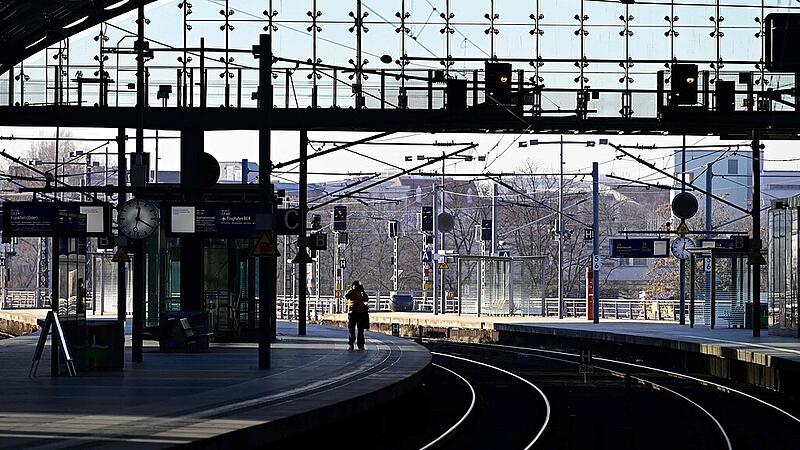Image: (APA/AFP/JOHN MACDOUGALL)
The strike began on Tuesday evening in freight transport and on Wednesday morning in long-distance and regional transport of Deutsche Bahn (DB). As with the recent strike in the German railway sector, train connections between Austria and Germany are also affected. The ÖBB recommend postponing non-essential trips.
The train connection for ÖBB tickets to and from Germany has been lifted, night train tickets can also be used during the day, the railway announced. Tickets purchased before January 22nd can be canceled and refunded if the trip does not start. Tickets that have already been purchased can also be used for longer, namely until February 5th. The Westbahn trains run as scheduled.
- more on the subject: Rail strike lasting several days: These ÖBB connections are affected
Emergency schedule started
The emergency timetable for passenger traffic got off to a stable start on Wednesday night, a German railway spokeswoman said in the morning. As with the previous strikes, around 80 percent of long-distance trains are canceled, according to Deutsche Bahn.
There are also significant restrictions in freight transport. “European freight traffic across the Alps, Poland or to Scandinavia as well as the sea ports in Holland or Belgium are also affected,” said Deutsche Bahn. Even before the strike, a significant decline in volumes had been recorded because many customers had canceled transport.
Companies were threatened with tough restrictions
Companies are threatened with severe restrictions, including individual production losses, cutbacks and standstills in the industry, said Tanja Gönner, the general manager of the Federal Association of German Industry, to the German Press Agency in Berlin. “In a six-day strike, a total damage amount of up to one billion euros is not unrealistic.”
The rail strike is scheduled to last until Monday evening at 6 p.m. The GDL’s fourth industrial dispute in the ongoing collective bargaining dispute with the state-owned company is “the longest in the history of Deutsche Bahn,” said the spokeswoman. It should last 136 hours for passenger traffic and 144 hours for freight traffic. For the first time in the current conflict, the strike also covers a complete weekend.
“As soon as Deutsche Bahn comes down from its high horse”
In a letter to Deutsche Bahn, the GDL renewed its tariff demands and specified some of them. “The proposals are based on the collective agreements that we have been able to reach with our collective bargaining partners in recent weeks,” says the letter that the GDL published on Wednesday. For example, a specific timetable is proposed for the required reduction in weekly working hours for shift workers from 38 to 35 hours without financial losses by 2028. It is the union’s core demand and the sticking point in the collective bargaining dispute.
Deutsche Bahn rejected the GDL’s proposals as a basis for further negotiations. It is simply a “repetition of well-known maximum demands,” said a spokeswoman on Wednesday morning.
“What Deutsche Bahn AG is doing is nothing other than the repeated rejection of all demands,” criticized GDL boss Claus Weselsky on Wednesday in the ZDF “Morgenmagazin”. The train only moves millimeters. When asked when the union would negotiate again, the trade unionist said: “As soon as Deutsche Bahn comes down from its high horse.”
My themes
For your saved topics were
new articles found.

info By clicking on the icon you can add the keyword to your topics.
info
By clicking on the icon you open your “my topics” page. They have of 15 keywords saved and would have to remove keywords.
info By clicking on the icon you can remove the keyword from your topics.
Add the topic to your topics.
Source: Nachrichten




